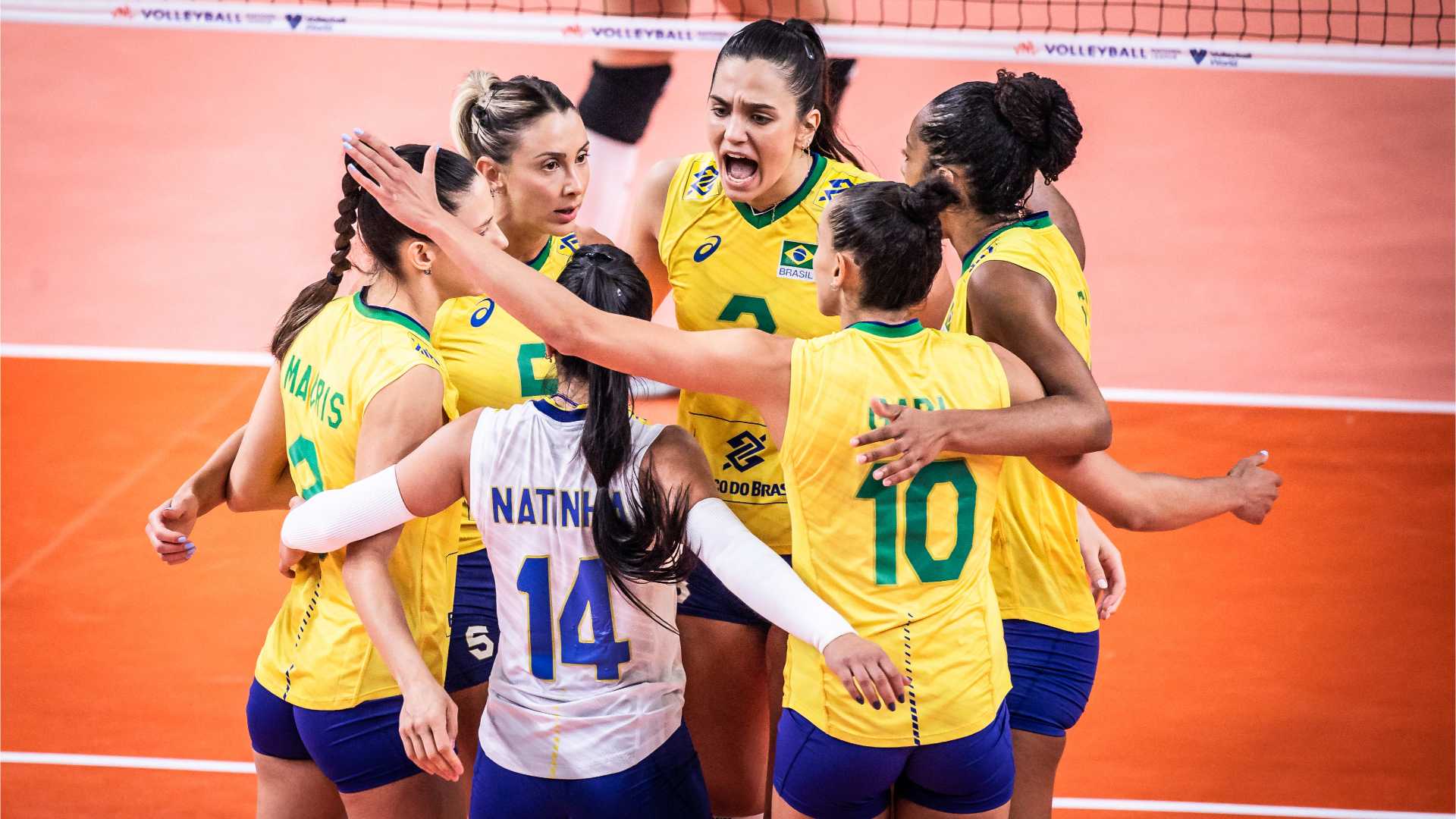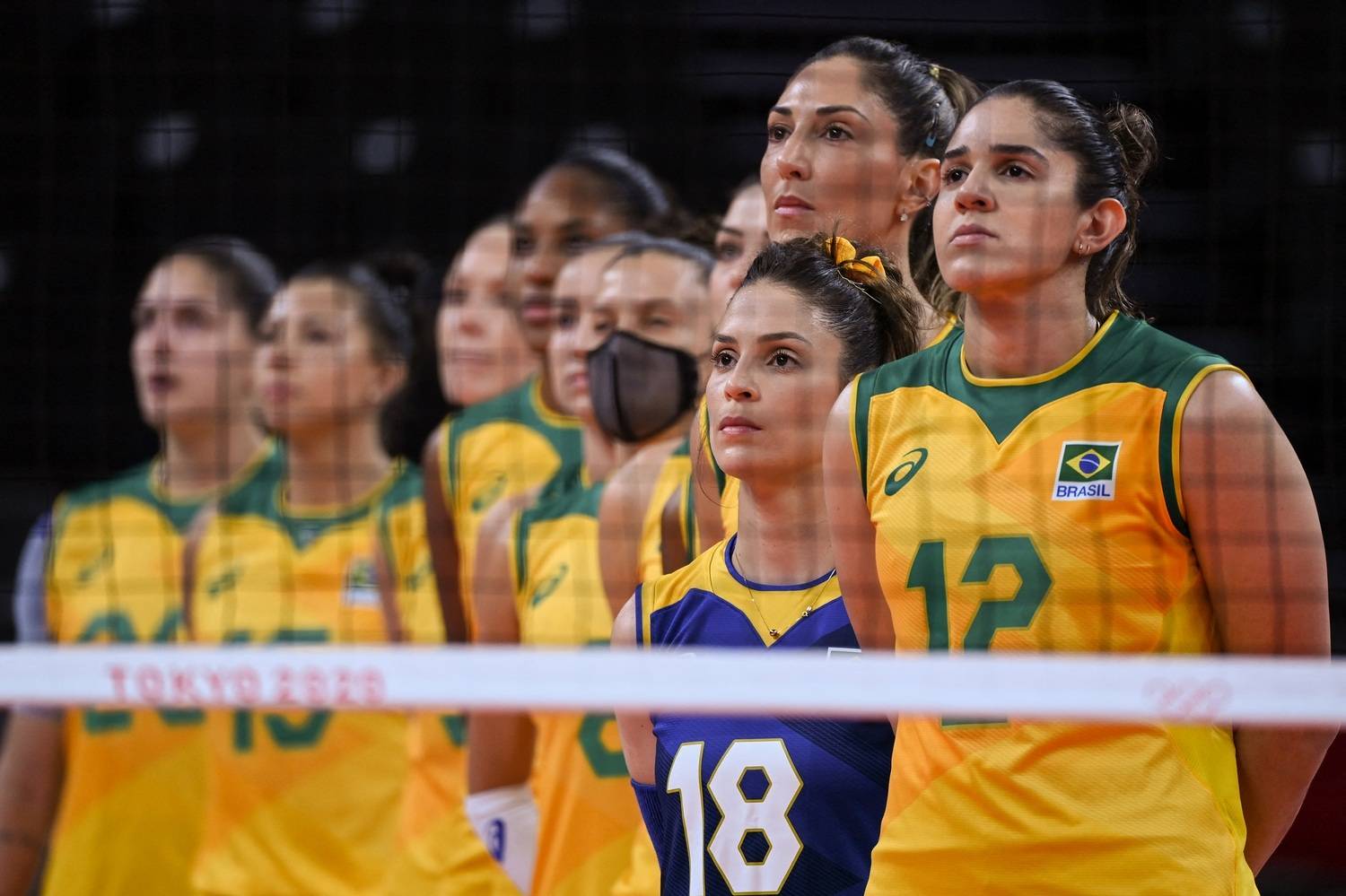History and Legacy: Brazil Volleyball Team
The Brazilian volleyball team, both men’s and women’s, has established itself as a global powerhouse in the sport, boasting a rich history of dominance and legendary players. This legacy is built on a foundation of consistent success, innovative playing styles, and a passionate fan base.
Timeline of Success
The Brazilian volleyball journey began in the early 20th century, with the sport gaining popularity in the 1950s. The national teams’ rise to prominence can be traced through key milestones:
- 1960s: The men’s team made its debut at the 1964 Tokyo Olympics, marking the beginning of their international journey.
- 1970s: The women’s team emerged as a force, winning their first South American Championship in 1971, laying the groundwork for future triumphs.
- 1980s: Both teams experienced significant growth, with the men’s team winning their first World Championship in 1982 and the women’s team claiming their first Olympic medal (bronze) in 1984.
- 1990s: The golden age of Brazilian volleyball arrived, marked by the rise of legendary players like Bernardinho and Giba. The men’s team dominated the world stage, winning three consecutive World Championships (1990, 1994, 1998) and their first Olympic gold in 1992. The women’s team also achieved remarkable success, winning their first World Championship in 1994 and securing their first Olympic gold in 2008.
- 2000s and beyond: Both teams continued their dominance, consistently featuring in major tournaments and securing numerous medals. The men’s team won their second Olympic gold in 2016, while the women’s team added another Olympic gold in 2012 and continued to be a force in international competitions.
Influence of Bernardinho and Giba, Brazil volleyball team
Bernardinho, as both a player and coach, has been a pivotal figure in the Brazilian volleyball scene. As a player, he was a key member of the 1992 Olympic gold-winning team, known for his leadership and strategic acumen. As coach, he led the men’s team to unparalleled success, winning two Olympic golds (2004 and 2016), four World Championships (1994, 1998, 2002, 2006), and multiple other titles. Bernardinho’s coaching philosophy, characterized by discipline, teamwork, and a focus on technical excellence, has left an indelible mark on Brazilian volleyball.
Giba, a renowned attacker, was a key player during the golden age of Brazilian volleyball. His powerful spikes and dynamic playing style made him a fan favorite and a symbol of Brazilian volleyball’s success. Giba’s contributions extended beyond his individual skills, as he was known for his leadership and ability to inspire his teammates.
Men’s and Women’s Teams: A Comparison
The men’s and women’s teams have both achieved remarkable success, but their playing styles and historical trajectories differ. The men’s team is known for its powerful offense, aggressive blocking, and strategic gameplay. Their dominance in the 1990s and 2000s was built on a foundation of individual brilliance and a cohesive team dynamic. The women’s team, on the other hand, has been characterized by its technical finesse, tactical intelligence, and a focus on team play. Their success has been marked by consistent performances and a strong emphasis on defensive strategies.
“The Brazilian volleyball team is a symbol of national pride, representing the country’s passion for the sport and its dedication to excellence.” – FIVB
Current Team and Players

The Brazilian men’s volleyball team boasts a roster filled with world-class talent and seasoned veterans, making them a formidable force in international competitions. The team’s success is a testament to the dedication and skill of its individual players, who collectively form a cohesive and formidable unit.
Key Players and Their Strengths
The Brazilian team is blessed with a wealth of talented players, each contributing unique skills and strengths to the team’s overall performance.
- Bruno Rezende (Setter): Known for his exceptional court vision, precise sets, and ability to orchestrate the offense, Bruno Rezende is the heart and soul of the Brazilian team. He consistently delivers accurate sets to his hitters, enabling them to unleash powerful attacks.
- Wallace de Souza (Opposite): A powerful and versatile hitter, Wallace de Souza is a force to be reckoned with on the court. He is renowned for his exceptional jumping ability, allowing him to deliver thunderous spikes that often overwhelm opponents.
- Douglas Souza (Outside Hitter): A dynamic and agile attacker, Douglas Souza is a key component of the Brazilian offense. His speed and agility enable him to navigate the court with ease, delivering consistent and effective attacks from the left side.
- Lucarelli Santos (Outside Hitter): Lucarelli Santos is a seasoned veteran who brings experience and consistency to the Brazilian team. He is a reliable attacker, known for his powerful spikes and effective blocking skills.
- Éder Carbonera (Middle Blocker): A dominant force at the net, Éder Carbonera is a formidable blocker and attacker. His exceptional height and jumping ability make him a constant threat to opposing hitters, disrupting their attacks and providing valuable points for the Brazilian team.
- Maurício Souza (Middle Blocker): Maurício Souza is a skilled and experienced middle blocker, known for his strong blocking and attacking abilities. He complements Éder Carbonera, forming a formidable duo at the net.
- Thales Hoss (Libero): Thales Hoss is a defensive specialist, renowned for his exceptional digging and passing skills. He provides a solid foundation for the Brazilian team, ensuring a consistent and reliable backcourt defense.
Playing Style and Tactical Approaches
The Brazilian team is known for its dynamic and aggressive style of play, characterized by a fast-paced offense and a strong emphasis on blocking.
- Fast-paced Offense: The team’s offensive strategy revolves around quick sets and precise attacks, aiming to catch opponents off guard and exploit their weaknesses. This approach demands exceptional teamwork and coordination, as players must anticipate each other’s movements and execute plays with precision.
- Strong Blocking: Brazil’s blocking prowess is a crucial element of its defensive strategy. The team’s tall and athletic middle blockers are formidable at the net, disrupting opponents’ attacks and securing valuable points. Their ability to read the hitters’ intentions and react swiftly is a key factor in the team’s success.
- Strategic Serving: The Brazilian team employs a variety of serving techniques, including jump serves and float serves, to disrupt the opponents’ reception and create scoring opportunities. They strategically target specific players, aiming to force errors and gain an advantage in the game.
- Flexible Formations: The team adapts its formations based on the opponent’s strengths and weaknesses, employing different strategies to maximize its effectiveness. This flexibility allows the Brazilian team to counter different playing styles and maintain a competitive edge.
Challenges and Opportunities
The Brazilian team faces several challenges in upcoming competitions, but also has numerous opportunities to solidify its position as a global powerhouse.
- Maintaining Consistency: The team’s success hinges on its ability to maintain a high level of consistency throughout the season. This requires dedication to training, strong team chemistry, and a focus on individual and collective improvement.
- Adapting to New Teams: The international volleyball landscape is constantly evolving, with new teams emerging and established teams improving their strategies. The Brazilian team must adapt to these changes and develop effective countermeasures to maintain its competitiveness.
- Building a Strong Bench: Having a strong bench is crucial for a team to withstand injuries and fatigue. The Brazilian team needs to develop a deep roster with players capable of stepping up and contributing at any moment.
- Opportunities for Growth: The Brazilian team has a wealth of young and talented players, providing ample opportunities for growth and development. By fostering a culture of learning and improvement, the team can ensure a sustainable future and continue its dominance in the sport.
Brazil volleyball team – The Brazilian volleyball team, known for their dynamic and powerful play, has dominated the sport for decades. Their success is often attributed to their exceptional athleticism and strategic prowess. Much like the blue eyes chaos max dragon gold rare , a coveted card in the Yu-Gi-Oh! Trading Card Game, the Brazilian team is a symbol of strength and rarity in the world of volleyball.
Their achievements, like the coveted gold medals, are a testament to their dedication and talent, just as the rare card is a prized possession for collectors.
Brazil’s volleyball team is renowned for its powerful serves and dynamic plays, often electrifying audiences with their athleticism and skill. After a hard-fought match, it’s easy to imagine the team relaxing with a refreshing beverage, perhaps a blue chair bay rum punch , which evokes the vibrant energy of the Caribbean, just like the Brazilian team brings to the court.

